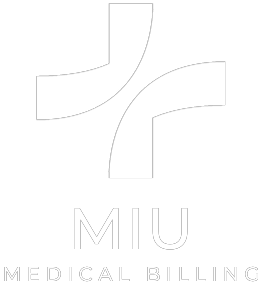Introduction
Medical billing effectively generates timely revenue for healthcare professionals, realizing the concepts of high-quality, efficient service delivery in the diverse functional domain of healthcare—the insurance verification specialist facilitates medical billing and reduces claim denials. The best ways healthcare organizations can positively impact their patient revenue cycle and financial performance are simply through the high-quality validation of insurance details and patients’ benefits.
Certifying Patients’ Right to Treatment and Insurance
Thus, medical billing insurance verification begins with screening the patient’s insurance guidelines and coverage. This involves confirmation of the patient’s current active health insurance plan, valid insurance policy numbers, active date of the current health insurance policy, and co-payment, deductibles, or coinsurance rate, if any. If this information is not validated appropriately, there is likely to be a situation where a claim gets rejected, payment may be delayed, or worse, there is possible revenue loss to the intended healthcare provider.
Checking for Pre-Authorization Requirements
Some insurance policies are usually reimbursable, and the insured person needs prior approval from the insurance company to undergo specific procedures or receive treatments. While carrying out the insurance verification process related to medical billing, it is necessary to determine this requirement from the insurance before one can proceed to offer any service. Omitting this step can lead to the rejection of the claims, and this has adverse consequences because it can significantly affect the provider’s cash flow, apart from causing other administrative stresses.
Understanding In-Network and Out-of-Network Benefits
Many hospitals or healthcare facilities enter into different agreements with insurance companies, both in-network and out-of-network. Insurance verification in Medical Billing helps the provider learn all about the patient’s coverage and covered benefits so that the calculator can more aptly predict the amount the patient is likely to pay for the service or product and avoid disputes.
Managing the Submission of a Claim
Careful checks several times before submitting the insurance information to Medical Billing will lower the rate of unsuccessful claims. The best practices help overcome issues associated with claim denials and rejections, thus minimizing repeated submissions or appeals. This fastens the reimbursement cycle and, in this way, helps enhance the cash flow of the healthcare organization.
Insurance Verification Specialist Enhancing Patient Satisfaction
The verification of insurance also plays a vital role in medical billing and contributes significantly to patient satisfaction. Another way through which timely health financial counseling is essential is when patients are provided with accurate estimates of their out-of-pocket expenses to reduce their burden and avoid charges they never expected. This gives the patient confidence and satisfaction in the facilities, hence a positive attitude towards the doctors, increasing the chances of the patient sticking with the doctors.
Implementing Technology in the Verification Process
The modern-day technological environment has allowed healthcare facilities to effectively employ technological solutions to provide efficient insurance verification for medical billing. The automated verification system allows rapid eligibility, benefits, and pre-authorization determinations using consumer/ patient databases within practice management tools and insurance carriers. It not only brings convenience to administrators by minimizing staff workloads but also avoids the mistakes made by these staff members while making them more objective.
Corporate Staff Training and Emergent Compliance
It is remarkable that with the help of technology, insurance verification has become much more effective. However, paying attention to staff training and adherence to all the legal and industry requirements is also obligatory. Given that insurance policies change constantly, there are frequent updates in coding strategies and healthcare legislation that medical billing professionals need to be acquainted with. As suggested by the given information, understanding and complying with protocols regarding training could reduce or even eradicate instances of generating wrong outputs, secure data, and safeguard the entire organizational system from legal and financial issues.
Outsourcing Insurance Verification Services
In today’s rising healthcare liability costs and limited budgets, outsourcing insurance verification for lower-capacity healthcare organizations or higher-volume medical billing transactions is not unreasonable. Insurance verification outsourcing involves dealing with specialized third-party vendors that provide dedicated teams of professionals to handle insurance verification tasks, knowledge of all sorts of compliance standards and judicial procedures preferred in the insurance sector, and much more. In this way, healthcare providers can concentrate more on attaining the best patient outcomes while relying on proper and time-saving medical billing solutions.
Conclusion
Hence, an insurance verification specialist is one of the most essential facets of medical billing, as it helps maintain financial integrity and improve the overall efficiency of work and patient satisfaction. Since claim denials slow down payer and provider reimbursements and hamper the overall revenue cycle, providers and patients should better clarify patients’ eligibility, coverage information, pre-authorization requirements, and in-network benefits. Thus, further insurance verification enhancement for Medical Billing can be achieved by Adopting and implementing sophisticated IT solutions, Ensuring that staff involved in Insurance verification is well trained, and Exploring options for outsourcing insurance verification processes. Thus, by focusing on the mentioned aspect of revenue cycle management, healthcare organizations can effectively manage Medical Billing and its challenges, decrease workload, and streamline their processes, prioritizing their primary mission: providing quality patient care while ensuring stable revenue.




